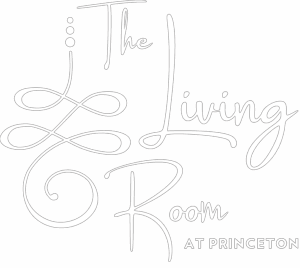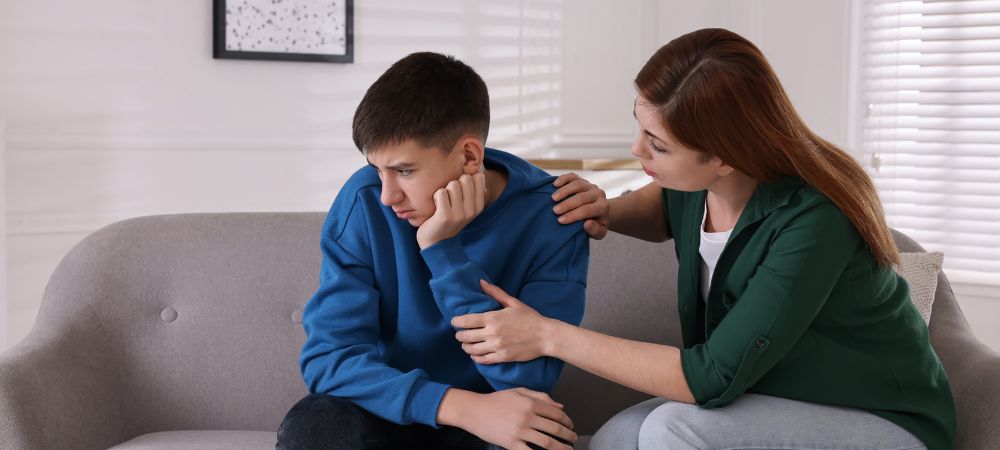Watching your child go through alcohol or drug addiction is never easy. All you want to do is help them overcome their struggles. While supporting them is one of the most important things you can do, sometimes, it can go too far.
If you find yourself giving your teenager money, bailing them out of trouble at school, or allowing them to break rules you’ve set in your household, you might be enabling them. Enabling is the act of helping in a manner that allows your child to continue abusing substances.[1] In all honesty, it can be extremely difficult to decipher the difference between supporting someone through a tough time and enabling them.
Once you stop enabling your addicted teen, they will be faced with the consequences of their substance abuse. As a result, they will be more likely to accept the help they need to overcome drug or alcohol addiction. But how do you stop enabling an addicted teenager?
The easiest ways to end your enabling behaviors include refraining from giving your teen money, setting rules and enforcing the consequences, not bailing them out of trouble, and requiring that they attend an addiction treatment program.
In this article, you will learn:
- What it means to enable someone
- How to stop enabling your addicted teenager
- How The Living Room at Princeton can help your teen recover
What is Enabling?
By definition, “enabling” means to make something possible or easy. In terms of addiction, enabling is the process of making it easier for a loved one to abuse drugs or alcohol. While no one wants to be thought of as an enabler, it is extremely easy to fall into this pattern of behavior.
Examples of enabling an addicted loved one include:
- Calling in sick to school for your teenager when they’ve partied all night
- Doing your child’s chores when they are out abusing drugs or alcohol
- Allowing your teenager to use the car when you know they are partying or buying drugs
- Giving them an allowance or money when they are likely using it to buy drugs or alcohol
- Bailing them out of jail, paying fines, or getting them out of trouble
As a parent, you have to care for your child, so it can be difficult to stop enabling them. Your primary role as their parent or guardian is to take care of them. That being said, if you are enabling them, you are making it easier for them to continue their problematic behaviors, which unfortunately hurts them in the long run.
Ways to Stop Enabling an Addicted Teen
Family members of addicts often feel the need to make their loved one’s life easier. You might find yourself doing things for them to avoid conflict and keep the peace. While you might think you are helping them, you are actually reinforcing their substance use disorder by making it easier to continue their behavior.
If your teenager is abusing drugs, it’s important to learn how to stop enabling behaviors. Doing so could give them the push they need to accept help from an addiction treatment center.
Stop Giving Them Money
One of the most common ways that people enable their addicted teenagers is by giving them money. Your teenager might ask for money to go out with friends, see a movie, or buy something at the mall. While all of these things might sound normal, they are likely using you to buy their drugs or alcohol.
Instead of giving them money to go spend on their own, buy things for them. If they want to see a movie, buy the ticket yourself. Refusing to give them cash will make it harder for them to obtain the drugs or alcohol they are abusing and ensure you are not offering financial assistance for their substance abuse.
Set Rules and Enforce Consequences
Before your teenager became addicted, you likely had house rules that you expected them to follow. As their substance abuse progressed, you might have started to loosen the reins to avoid conflict. Unfortunately, letting your guard down makes it easier for them to continue their problematic behaviors.
For example, if you allow your addicted teenager to continually break curfew without consequences, it makes it easier for them to attend parties and abuse substances with their friends. Instead, take away their phone or only allow them to go to and from school when they break curfew. Enforcing the rules will show them that there are real consequences for their actions.
Do Not Bail Them Out of Trouble
Addiction includes changes in behavior, often so much so that your teenager might get into trouble with the law. If your teenager is picked up for drug possession, underage drinking, or stealing, you might be tempted to bail them out of jail.
Instead, allow them to spend the night there. Avoiding bailing them out of trouble will allow them to understand how their substance abuse will affect their life. After a night in jail, they might be more willing to attend an addiction treatment program.
Require Addiction Treatment
If your teenager is struggling with addiction, you should require that they attend a drug or alcohol rehab center for teens. While they might fight you on this, you are allowed to force them into rehab.
There is a common misconception that your teenager has to “hit rock bottom” before treatment will work. While experiencing consequences makes it easier to accept sobriety, sometimes, all your teenager will need is a good therapist and connections with other people their age in recovery.
Attend Groups Like Al-Anon
The best way to stop your enabling behaviors is to attend a support group for the loved ones of an addicted person. Al-Anon offers meetings for the loved ones of addicts to overcome their enabling behaviors, heal from the trauma they have experienced, and support one another throughout the process.
Being in one of these support groups will help you develop healthy coping mechanisms and learn how to support your teenager without enabling them.
Find Help for an Addicted Teenager
If your teenager suffers from alcohol or drug abuse, it’s time to seek professional help. Addiction treatment will help your teenager heal from the root causes of their addiction, learn healthy coping mechanisms, and get their life back on track.
At the Living Room, we offer evidence-based and compassionate care for adolescents struggling with substance abuse. Our programs focus on meeting teenagers where they are at, integrating mental health services with addiction treatment, and ensuring they keep up with their schoolwork at the same time.
Nestled in the bucolic setting of Princeton, NJ, The Living Room is a first-of-its-kind behavioral healthcare facility. Designed by a world-renowned Disney Imagineer and staffed by the industry’s most dedicated professionals, The Living Room at Princeton is an invitation to a life of freedom, compassion, and purpose specifically available to those of us who have known the struggles of addiction and mental health concerns.
Contact us today to learn more about how to get started.
References:
- National Center for PTSD: What is Enabling?

